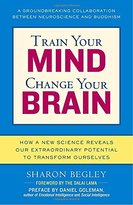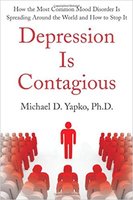 The joy of reading is how it allows us all to experience the world from within another’s perspective. When an autobiography is authentic and genuine, the reader can immerse in the writer’s reality. Nobody Nowhere: The Extraordinary Autobiography of an Autistic, by Donna Williams, is one of those books. Alternately engaging and informative, as well as confusing and disturbing, Nobody Nowhere pulls its readers into Donna Williams’ world. Published in 1992, the book is certainly out of date in some ways, particularly the more technical aspects surrounding the diagnosis. (The author has published a number of books since this, her first, and, although I haven’t read them, I would imagine they’re more accurate and up to date with more current knowledge about the condition.) The more timeless aspects of the book are the more personal, where Williams relates her own experiences, her connection to things rather than people, her struggles to feel safe and also to connect. Often the book feels disjointed and confusing, in part because of the unclear timelines, as well as the author’s habit of referring to herself by various names and in the third person. Rather than detract from the book, this confusion adds to the experiential nature of the book, although it can be disturbing to read of the abuse and mistreatment the author endured. The final section of the book presents the author’s own theories about autism as well as her suggestions for communicating with autistic children. Of course, the autism spectrum is very broad, but especially for parents looking to understand their own child, Williams’ suggestions may provide some valuable insights. Managing emotions is a challenge for many individuals, young or old, whether neurotypical or somewhere on the autism spectrum. Everyone’s struggles are a bit different, with some people veering toward worry and anxiety, others tending to sadness or depression and still others prone to anger. A great deal of my work as a therapist is in helping people manage their troubling emotions, whatever emotions they happen to be.
When working with emotions, it’s helpful to pay attention to the feelings of the body, the actual somatic sensations. Many individuals are more comfortable staying in their heads, intellectualizing and reasoning, rather than physically feeling. If you’re intellectual, pride yourself on your academic achievements or thinking strengths, this could apply to you. If you struggle with overwhelming sensory issues, or physical activities like athletics, then it’s not surprising if you also avoid the more bodily experiences of emotions. The best way to manage feelings is to actually feel them. Try it now. Stop talking, stop doing anything, try to quiet that conversation in your head. Take a breath, and feel what’s going on in your body. One of the most troublesome aspects of autism and Asperger’s can be the tendency toward repetitive thoughts, also referred to as stuck thoughts or ruminations. While this trait is probably tied to the ability toward extreme focus that can be such a strength for those on the spectrum, it’s a problem when individuals can’t shift away from thinking about things that are not of their choosing. Often, individuals get caught up in worries, dwelling on past slights from others or their own mistakes or have problems letting go of past traumas.
Frequently, people will refer to this issue with the term “obsession”, but I don’t like to use obsession in this case. Technically, “obsession” as used in the mental health sense refers to stuck images, thoughts or ideas that are a part of Obsessive Compulsive Disorder. Although some individuals with ASDs also have OCD, that’s not always the case.The content of thoughts in OCD also tend to be different than those found with ASDs. (For an excellent article on this, see McDougle, C. J., Kresch, L. E., Goodman, W. K., et al (1995) A case-controlled study of repetitive thoughts and behaviour in adults with autistic disorder and obsessive-compulsive disorder. American Journal of Psychiatry, 152, 772 -777) An excellent book for self treatment of OCD is Brain Lock: Free Yourself from Obsessive Compulsive Disorder, by Jeffrey M. Schwartz, M. D. Schwartz presents a four step program involving learning to recognize obsessive thoughts, labelling them as a part of OCD, focusing on something else for at least a brief while, and then finally “revaluing” these obsessive thoughts. You can find a clear explanation of these four steps on the website for the Westwood Institute for Anxiety Disorders, Inc. Neither the book nor the website talk specifically about the autism spectrum and repetitive thoughts, but Brain Lock does have an interesting chapter on the Four Steps and Other Disorders, and states that they can be applied to “almost any behavior you genuinely want to change.” (p. 187) The ideas in this book are certainly worth considering for those on the autism spectrum dealing with this troublesome issue. Depression and antidepressants are big news this week with Newsweek’s February 9, 2010 story by Sharon Begley, “The Depressing News About Antidepressants: Studies suggest that the popular drugs are no more effective than a placebo. In fact, they may be worse.” (Sharon Begley also wrote the book Train Your Mind, Change Your Brain, which I discussed in an earlier post.)The article goes on to explain the placebo effect, and what analysis of numerous studies on antidepressants, both those published and not published are showing about the effect of the drugs, and the often superior results of psychotherapy. Depression is a concern for many on the Autism Spectrum, with almost a third of individuals with autism and Asperger’s also dealing with depression. (Mohammad Ghaziuddin’s Mental Health Aspects of Autism and Asperger Syndrome has a good review on this topic if you’re looking for details.) Social isolation, difficulty managing relationships, chronic stress from sensory issues, and practical matters like underemployment can all be contributing factors. For more info, you can find an earlier article I wrote on "Depression with Asperger's Syndrome and Autism". Dr. Michael Yapko, a Clinical Psychologist and MFT, has published and spoken extensively on the ideas that depression is the result of many lifestyle and social choices and curing depression does not come from a pill. He is the author of Depression Is Contagious, which I haven’t yet read, but it’s in my stack of books. You can hear an interview of Dr. Yapko, where he discusses his book and theories on the importance of social connections and good problem solving skills in managing depression. Please note: If you’re currently taking antidepressants and these articles are concerning to you, don’t just stop taking them. Please talk to your prescribing physician. It can be very dangerous to stop taking any prescribed medication, or to alter the dose, and any changes to medications should be made under a doctor’s supervision.
I’m a therapist, also called a counselor, a psychotherapist, or even a "shrink", and I work with people who have Asperger’s, autism, or other ASDs. But that doesn’t mean I’m trying to cure someone of their autism. That’s a confusing distinction, but it’s important.
Many individuals on the autism spectrum are struggling with the symptoms from a mental disorder, such as depression, anxiety, or getting caught up in repetitive thoughts. Those are all things that can be treated with psychotherapy, (and sometimes other means), and often “cured” or at least managed so that the symptoms aren’t a problem. Other individuals on the autism spectrum are trying to deal with issues that go along with their autism, such as difficulties with social signals or managing relationships. Those symptoms can also be managed through psychotherapy. But the important thing is that in neither of these cases is psychotherapy meant to take the autism away from an individual. It’s not trying, or even wanting, to “cure” autism or Asperger’s. I think that many autistic people don’t want to be changed. They appreciate and enjoy their cognitive strengths. They derive a great deal of pleasure from their special interests. They relish alone time. And they have no interest in becoming a social, outgoing, maybe even shallow, neurotypical. The good news is that people can have the best of both worlds. Therapy can manage depression, anxiety, or other symptoms so they’re not a problem. People looking for more satisfying relationships or professional success can learn to adapt in the ways they choose to. And at the same time, all the strengths and special characteristics of ASDs don’t have to be erased. You can learn more about this topic at my Therapy and Coaching for Asperger's, Autism and ADHD website or in my ezine article on Depression with Asperger’s and Autism. All individuals, whether they have a diagnosis of autism or Asperger’s or not, are faced with stressful situations. This might be a job interview, an athletic competition, a performance review with a boss, or all the testing that students have to go through. Some people just seem to sail through these experiences, others get completely caught up in the stress. A big part of how well you manage is related to how well you can soothe yourself, and that’s all about self talk.
The idea of self talk was parodied by Al Franken as Saturday Night Live character Stuart Smalley, where he repeatedly affirmed “I'm good enough, I'm smart enough, and doggone it, people like me!” But it’s more than just a joke. Positive self talk has its roots in well researched psychology techniques such as Cognitive Behavioral Therapy (CBT). And, self talk can be effective for not just serious mental disorders like depression and anxiety, but for the more commonplace stresses we all face. So exactly what is self talk? It’s those little comments running through your head when faced with a tough situation. Pay attention next time to what you’re telling yourself. Faced with a challenging math problem, is it something helpful like, “I can do this, I’ve done lots of practice problems.” or , “OMG, I’m awful at math. I’m always so stupid!” When you encounter your critical boss, do you think, “Oh no, he hates me! He’ll be complaining about my report.” or can you shift to a more helpful, “”I did a great job on that report. He’ll be pleased with it even if he doesn’t comment.” Learning to notice and even change your own self talk can be the first step towards success. It's Monday, the holidays are over, and, at least here in Northern California, the weather is dreary and drizzly. A little depressing. Even my dog, Olive, doesn't seem to have much energy. Maybe you're feeling the same way.
Many individuals on the autism spectrum, and those with Asperger's, can be prone to depression, both the temporary feeling of sadness and the DSM diagnosis of Major Depressive Disorder. Of course, I can't treat mental health issues or diagnose over the internet, but I can direct you to the well written Mayo Clinic website. They discuss Depression, nutrition, Seasonal Affective Disorder (SAD), light box therapy, the benefits of exercise, psychotherapy, and even alternative therapies. My favorites are the coping and support sections under the topics for both SAD and Major Depression. These are some excellent tips for improving your moods, and taking steps to feel better. The site also has good info on when to see a doctor. If you're feeling a little down after the holiday rush, why not check out this website? I've gotten mixed responses on my recent post about taking a breath. Some people say it doesn't work to relax them, others say they're not nervous. Of course, do whatever works for you.
However, if you'd like to try breathing to ground your emotions and feel more relaxed, I encourage you to explore the techniques I'm linking to here, in an article written by my colleague Toi Lynn Wyle. Toi Lynn is not only a psychotherapist and life coach, she's a yoga instructor as well, so she's an expert in this topic. I know everybody is different, but we all breathe. Under stress it can be easy to move up into our heads, and not remain grounded in the body. Breathing helps to connect us to our bodies. For those of us who weren't athletic as children, it can be very easy to be in the habit of living in our heads. Take a breath. |
Patricia Robinson MFT
I'm a licensed therapist in Danville, California and a coach for Asperger's and ADHD nationwide. I work with individuals of all ages who have special needs, like Autism Spectrum Disorders, ADD, ADHD, and the family members and partners of special needs individuals. Archives
February 2015
Categories
All
|



 RSS Feed
RSS Feed